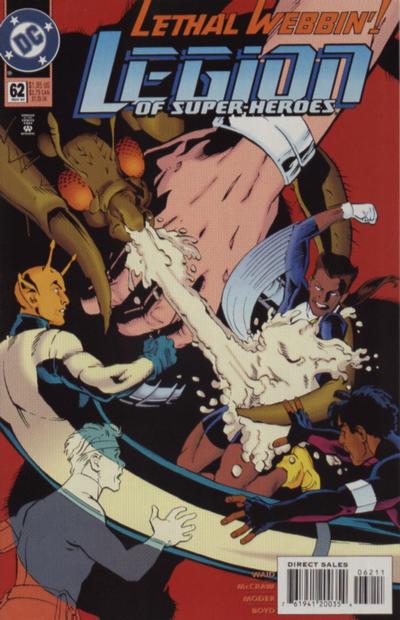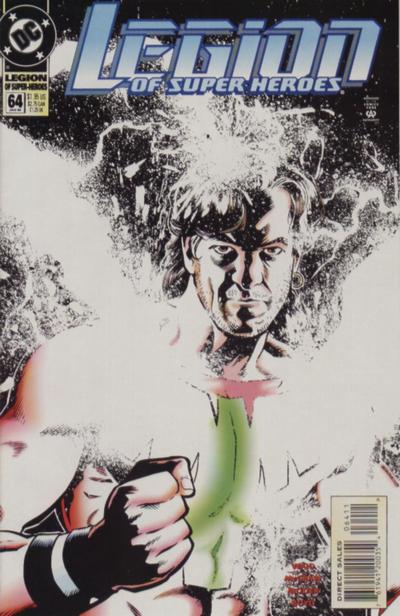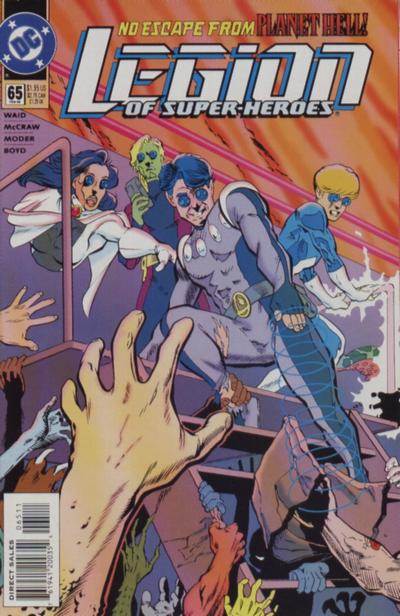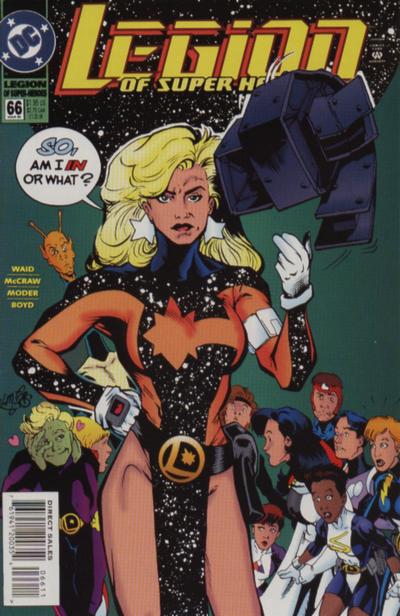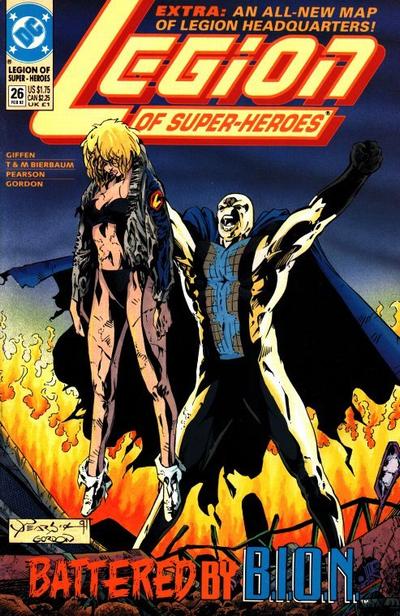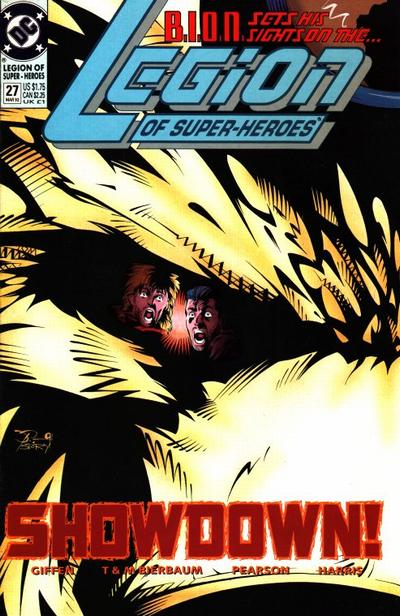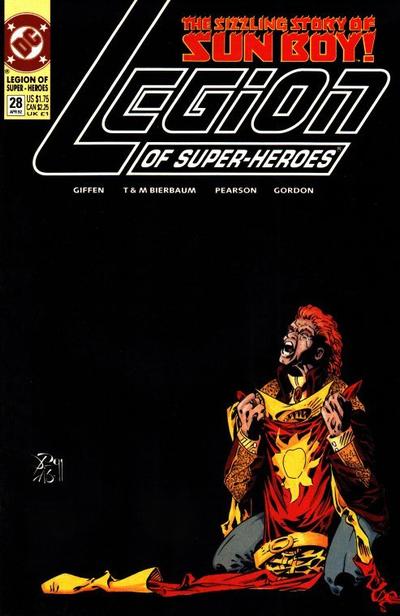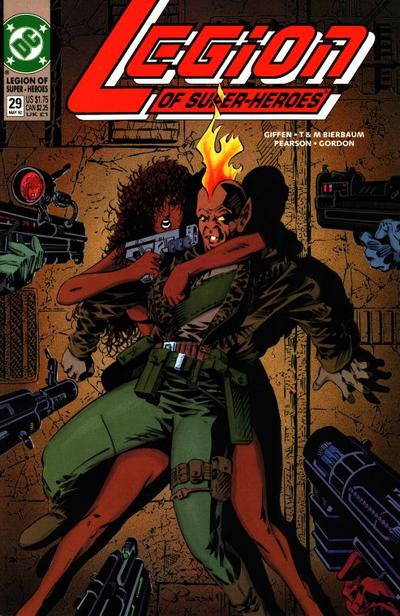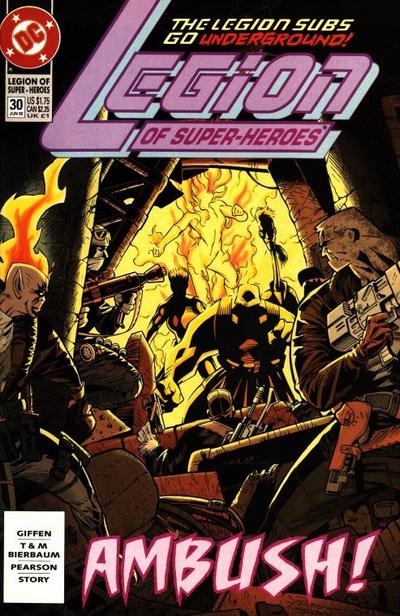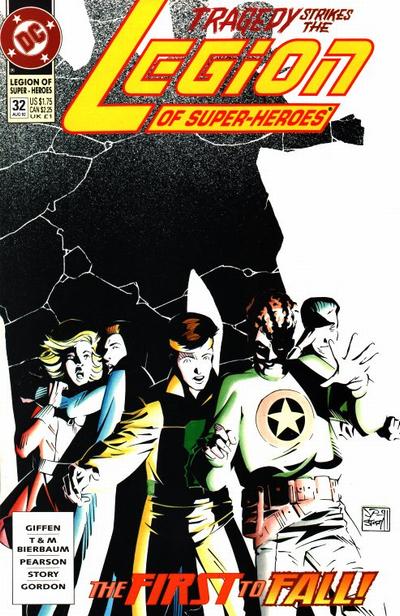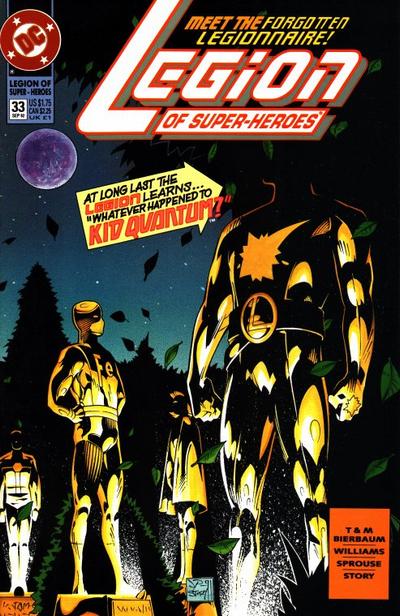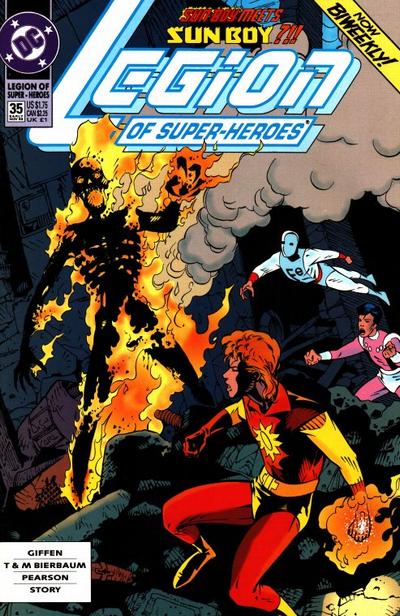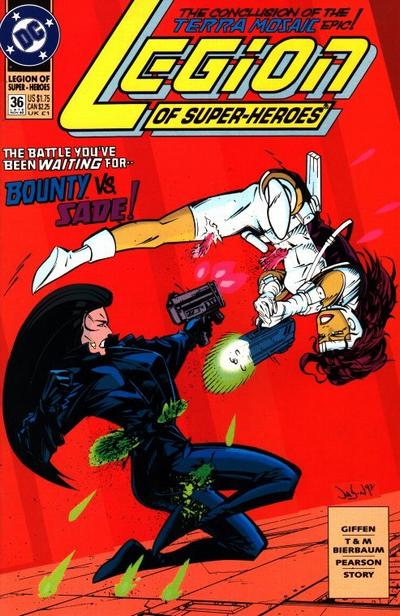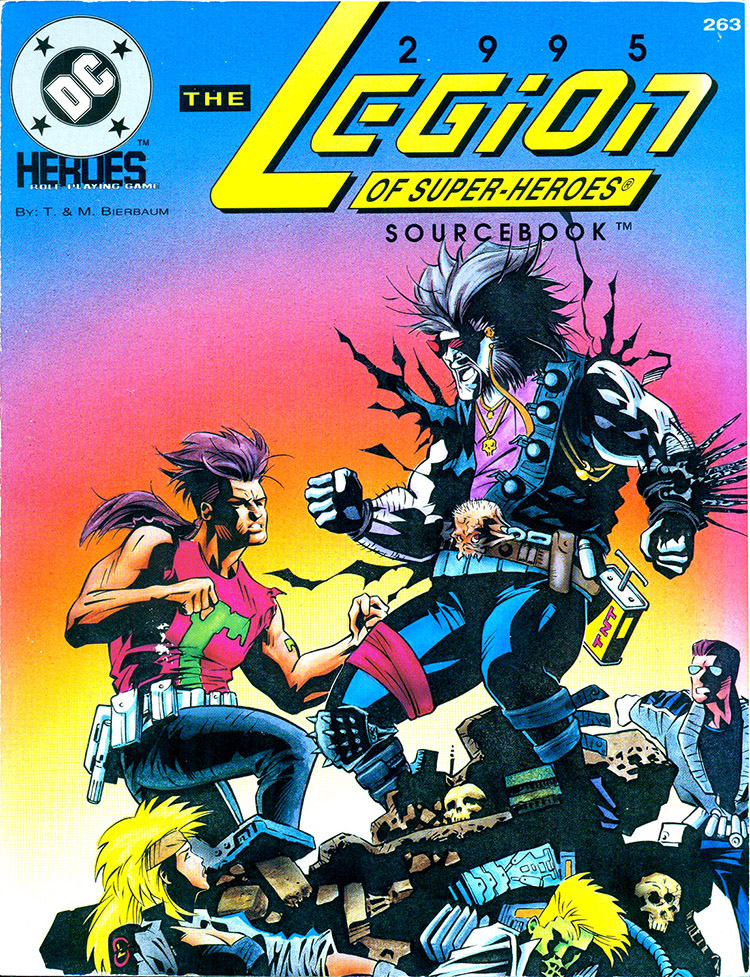RIP: Lee Moder
We recently lost one of the great artists of the Five Years Later run, Jason Pearson. This week we heard of the loss of one of the first great artists of the Reboot run: Lee Moder.
Moder only drew four covers for the Legion: 62, 64, 65, and 66. That's because for the majority of his run, the covers were by Alan Davis and Mark Farmer. He drew 36 issues of the Legion - 62-66, 68-69, 71-88, 90-92, 94-100, and 109 - over the course of four years (cover date 11/94 to 10/98).
As penciller on their first issues, Moder shares co-creator credits on Tangleweb, Inferno, Kinetix, Gates, and Lori Morning.
Best as I can tell, Moder's first work was the interior art for L.E.G.I.O.N. '92 #38 in April 1992. He did some work on Wonder Woman and Justice League International in 1993 and 1994 before becoming the regular penciller on the Legion book immediately following the Reboot. In 1999 he co-created Stargirl in Stars & STRIPE with Geoff Johns, and did the first 14 issues of that series. He did some work for Dynamite, DC, and Boom in the early 2000s, but was mostly out of comics by 2010. His last new work for DC was a Superman/Stargirl cover in 2015.
Here are his Legion covers:
